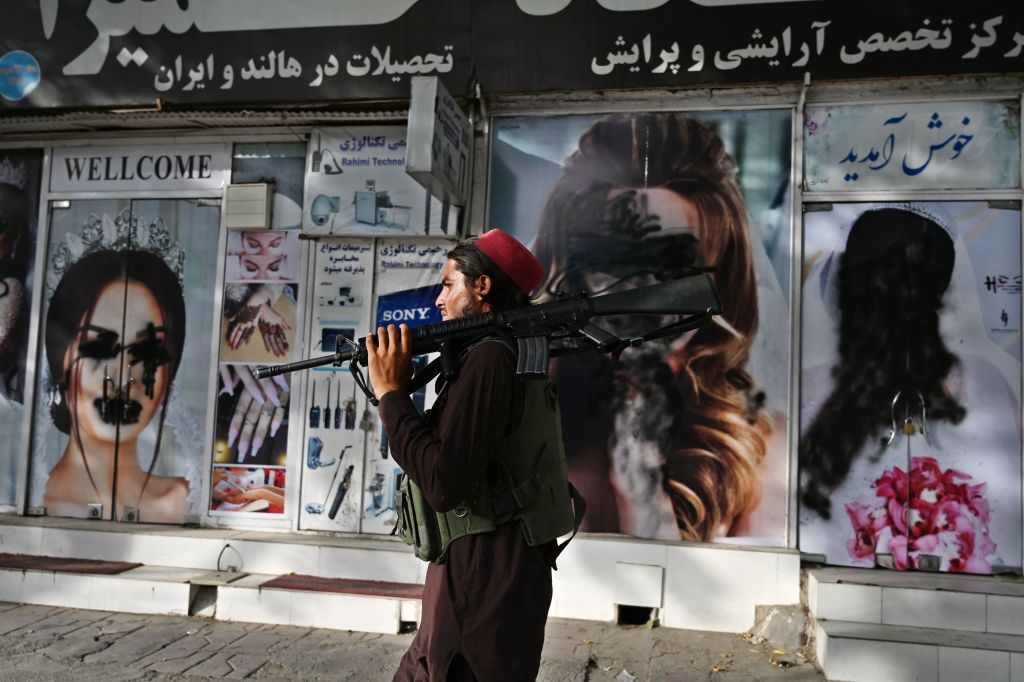America’s war in Afghanistan is vanishing from the internet. Federal agencies are wiping websites of videos, articles, and photos and saying it must be done to protect the lives of the Afghans left behind who may face retaliation from the Taliban.
State Department Spokesperson Ned Price told the Associated Press that the process of scrubbing online evidence of Afghans working with coalition forces “is of the utmost importance” and that State’s policy is “only to remove content in exceptional situations like this one. In doing so, department personnel are following records retention requirements.”
Videos by VICE
The United States Agency for International Development—the agency in charge of much of the more than $100 billion America spent reconstructing Afghanistan—is also purging records. “Given the security situation in Afghanistan, and out of an abundance of caution for the safety of our staff, partners, and beneficiaries, we are reviewing USAID public websites and social media to archive content that could pose a risk to certain individuals and groups,” it told the Associated Press.
It’s not just American agencies. NATO and members of other Western countries participated in the 20-year-long war in Afghanistan and they too have begun to purge records of the war from the internet. Resolute Support Mission, the NATO led effort to train and support Afghan forces, deleted its Twitter account. NATO has removed some videos from its official YouTube channel.
NATO did not immediately return Motherboard’s request for comment.
Tens of thousands of Afghans worked with the United States and coalition forces during the 20 year war and the fear that the Taliban will retaliate against them is a reasonable one. But eradicating all evidence of the war and those involved from the internet is an impossible task. Twenty years of unending war created millions of documents. There’s videos, photographs, reports, and various other media scattered across hundreds of websites.
One part of the Department of Defense that houses millions of U.S. military generated images, many of them from Afghanistan, didn’t immediately respond to Motherboard’s request for comment. Military social media accounts also contain images from the conflict.
Then there’s the archives. Wikipedia and the Internet Archive are vast storehouses of digital records of the war in Afghanistan. Hundreds of NGOs went in and out of the country over the last two decades and kept their own records. The Internet Archive did not immediately return Motherboard’s request for comment.
Even if the State Department and USAID purge its records completely there’s still hundreds of other agencies who kept their own records of the war. Much of it is still online.
Lives are on the line here, but helping them may mean destroying—even if temporarily—the memory of the war and all that happened. It’s a horrible problem to face. One potential solution would be for the U.S. and its allies to take as many Afghan refugees as want to flee the country.
Through the Afghan Special Immigrant Visa program, the United States has evacuated around 2,000 people so far. Tens of thousands of people remain, desperate to evacuate. Removing the faces and names of these people from the internet may help, but the U.S. owes the people who helped them a debt that can’t be repaid by simply deleting videos and documents from the internet. The US has an obligation to drastically increase the number of refugees it’s willing to help leave the country.




